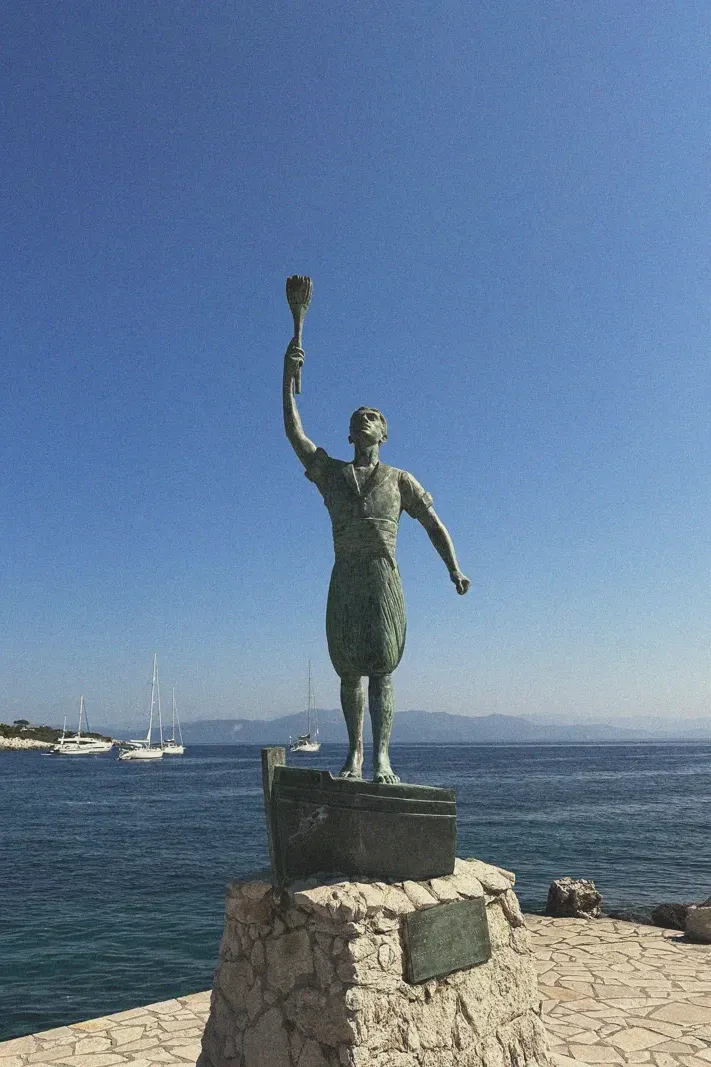
The History of Paxos: From Ancient Times to Modern Day
infoIntroduction
Paxos, a gem in the Ionian Sea, weaves a history as rich and vibrant as the waters that lap its shores. Though small in size, this island is a treasure trove of stories, where ancient myths blend with the tides of empires and cultures.

Mythological Origins
Legend whispers that Paxos was born from the sea at the behest of Poseidon, the god of the sea. Seeking a tranquil haven for himself and his beloved Amphitrite, Poseidon cleaved Paxos from Corfu with a sweep of his trident. This myth imparts a mystical aura to the island, casting a spell of ancient magic over its sun-drenched beaches and verdant hills.
Prehistoric and Ancient Times
Beneath the surface of modern-day Paxos lie layers of history dating back to prehistoric times. Archaeological findings, such as pottery shards and remnants of early settlements, provide a window into the island's ancient past. Its strategic location in the Ionian Sea made it a prized possession among early Greek mariners and traders.
Roman and Byzantine Influence
As Rome expanded its empire, Paxos fell under its sway. The Romans left behind a legacy of architectural ruins and artifacts, embedding their culture into the fabric of the island. Following Rome’s fall, the Byzantine Empire rose to prominence, influencing Paxos's religious and cultural identity, and leaving an indelible mark on its spiritual landscape.


Venetian Rule
The Venetian era, beginning in the 14th century, was a time of significant transformation for Paxos. The Venetians fortified the island, erected elegant buildings, and imbued it with their distinctive architectural flair. Today, the Venetian influence remains a visible and celebrated aspect of Paxos's character, particularly in its stunning villas and churches.
Ottoman Intrusions and Pirate Attacks
The history of Paxos is also marked by adversity. The island faced threats from the Ottoman Empire and became a haven for pirates, leading to a turbulent era defined by conflict and resilience. These challenges forged a robust spirit among the Paxiots, evident in the tales of bravery and endurance that echo through the island's folklore.
French, Russian, and British Influence
In the wake of the Napoleonic Wars, Paxos was touched by the tides of French and Russian influences. However, it was the British protectorate in the 19th century that had a profound impact on the island. The British introduced new systems of governance, education, and infrastructure, shaping the socio-economic landscape of Paxos.

Union with Greece and Modern Developments
Paxos's union with Greece in 1864 marked a new chapter in its history. Embracing modernity while cherishing its historical roots, the island has flourished as a unique blend of tradition and contemporary life. Today, Paxos is not only a bastion of Greek heritage but also a serene retreat for visitors from around the globe.
Preserving History: Museums and Historical Sites
Paxos proudly preserves its heritage. Museums and historical sites scattered across the island invite visitors to delve into its past. From the intricacies of olive oil production to the ruins of ancient fortresses, these sites are guardians of Paxos's history, ensuring the legacy of this enchanting island endures.
Conclusion
The tale of Paxos is a rich tapestry woven with the threads of myths, battles, and cultural metamorphoses. More than just a picturesque destination, Paxos is a living chronicle of the ages, beckoning travelers to uncover its secrets and relive its storied past.